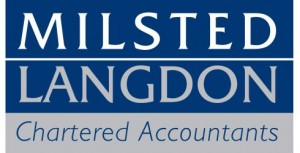I’m confused about the difference between tax avoidance and tax evasion. The Government seems to talk about them as virtually the same thing – is that right?
It has always been pretty clearly understood that tax evasion is wrong. It involves breaking the law and is a criminal act.
Tax avoidance, on the other hand, is a process that takes place within the tax rules and legislation to identify  and make use of opportunities to reduce tax bills. Some avoidance schemes may be more complex than others – such as those recently hitting the headlines due to their celebrity clients – but the point is that they are still legal.
and make use of opportunities to reduce tax bills. Some avoidance schemes may be more complex than others – such as those recently hitting the headlines due to their celebrity clients – but the point is that they are still legal.
Over recent years, however, various governments and HM Revenue & Customs have appeared to subtly blur the distinction between the two, with the terms seemingly becoming almost interchangeable.
The reality is that different governments have built up layer after layer of tax legislation – at the same time creating more and more routes through which it is entirely legitimate to reduce tax bills – that accountants and advisors seem to understand rather better than the people who drafted the rules.
The Government would say it is what it calls “artificial and abusive” tax minimisation it is seeking to stamp out, and that’s fair enough. At the same time, it is in danger of tarring a much broader spread of tax planning – including many common-sense opportunities for taxpayers to pay a little less – with the anti-avoidance brush.
No-one would describe using your full ISA allowance as tax avoidance, even though you avoid tax because the interest earned is tax-free. Nor would any sensible person see using in full tax reliefs and allowances – for taxes such as capital gains or inheritance tax, or capital allowances for businesses – as tax avoidance.
A clampdown on illegal tax evasion is entirely appropriate. Legally organising your tax affairs to reduce your bill is an entirely different matter. Perhaps someone needs to explain that to the powers that be.
For further information on tax planning issues, please contact Jon Stocker at jstocker@milsted-langdon.co.uk. For further information on any of Milsted Langdon’s services, please visit www.milsted-langdon.co.uk






























